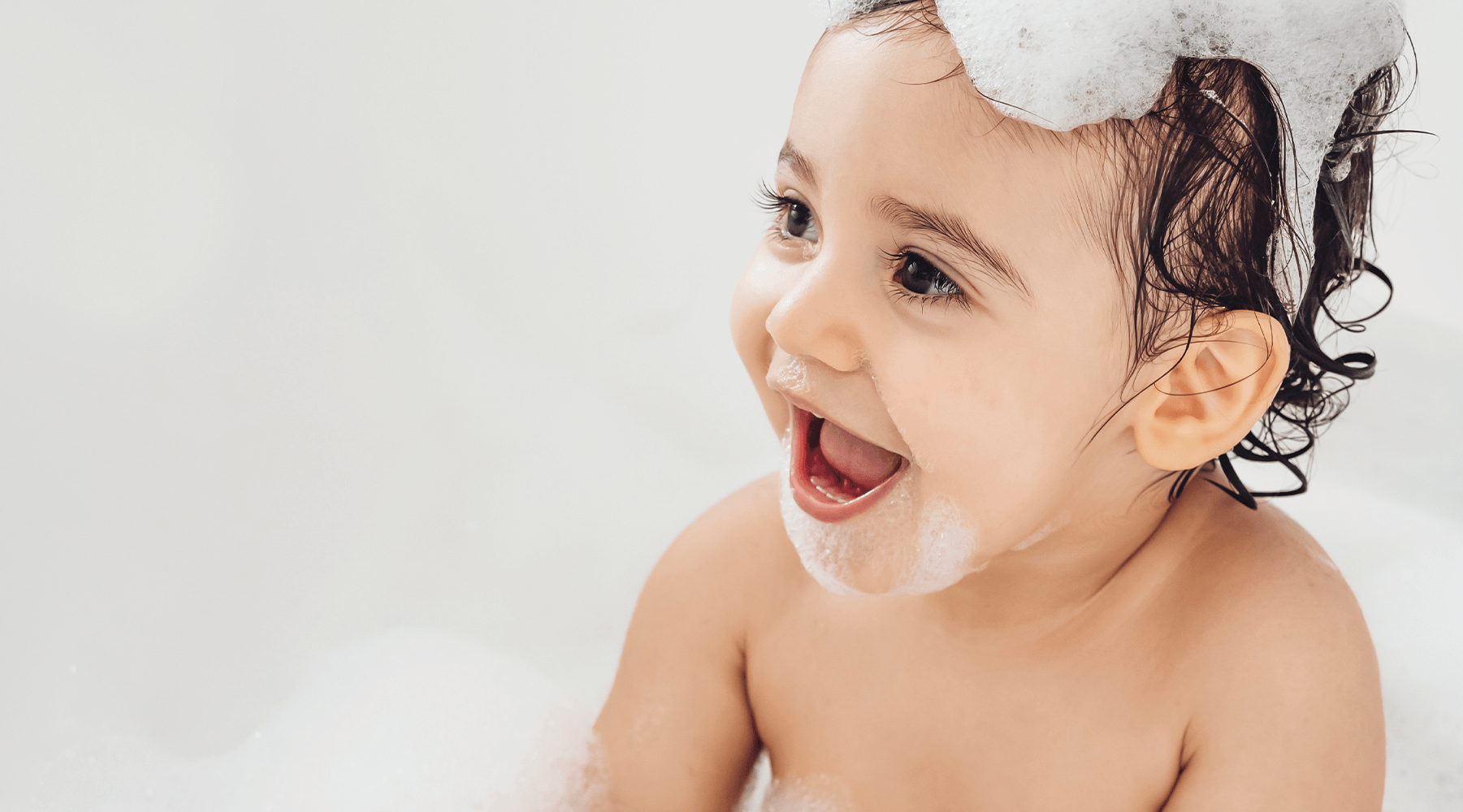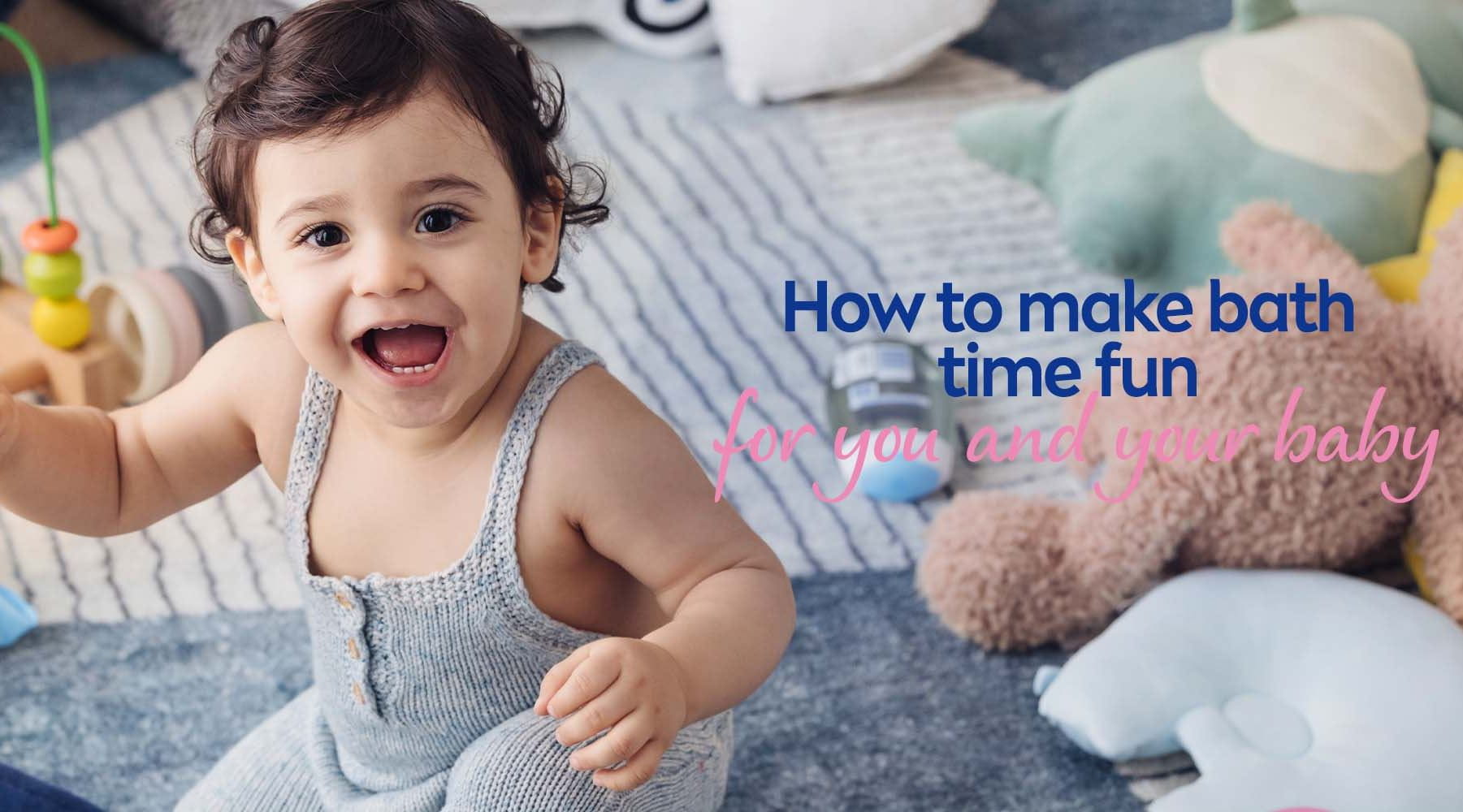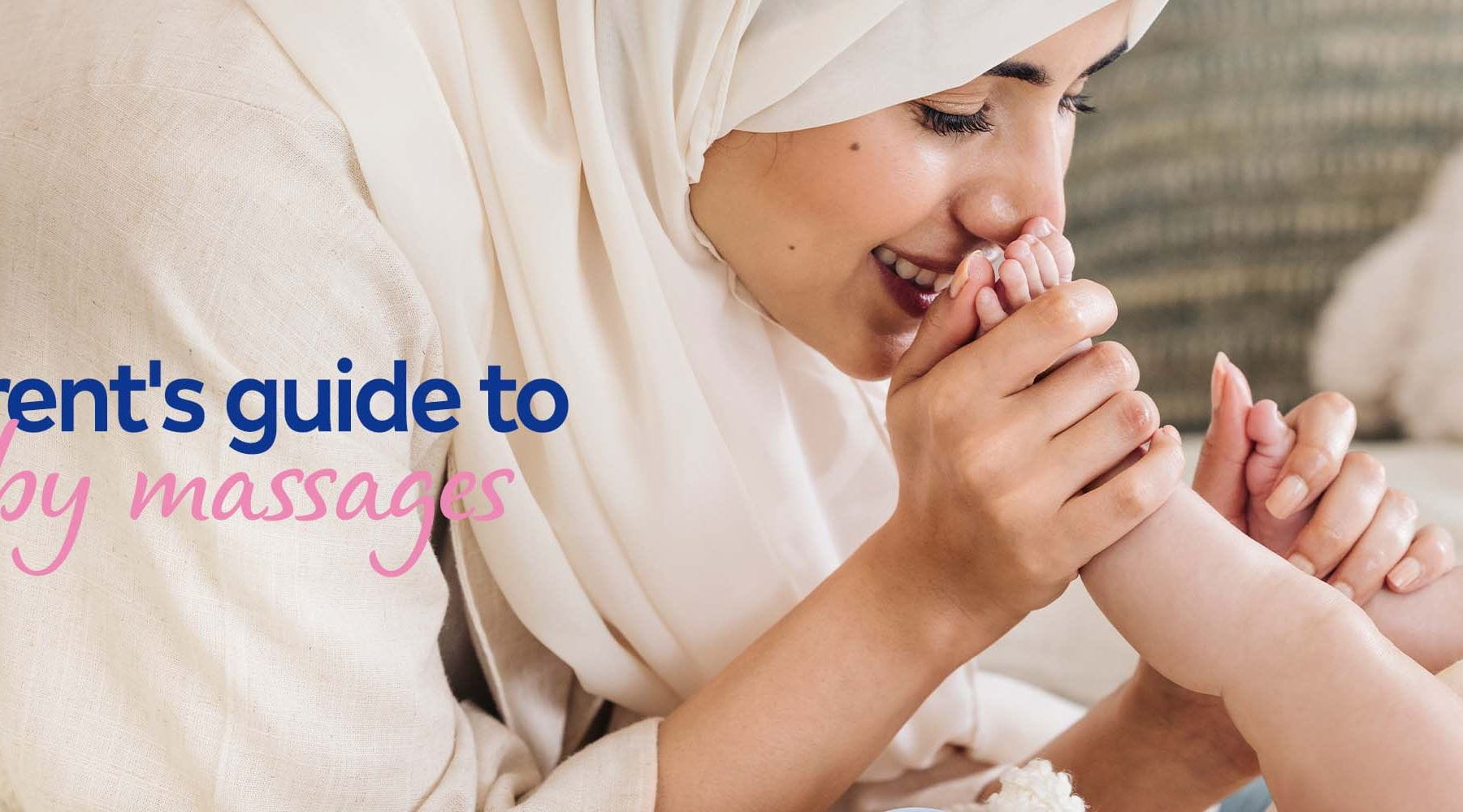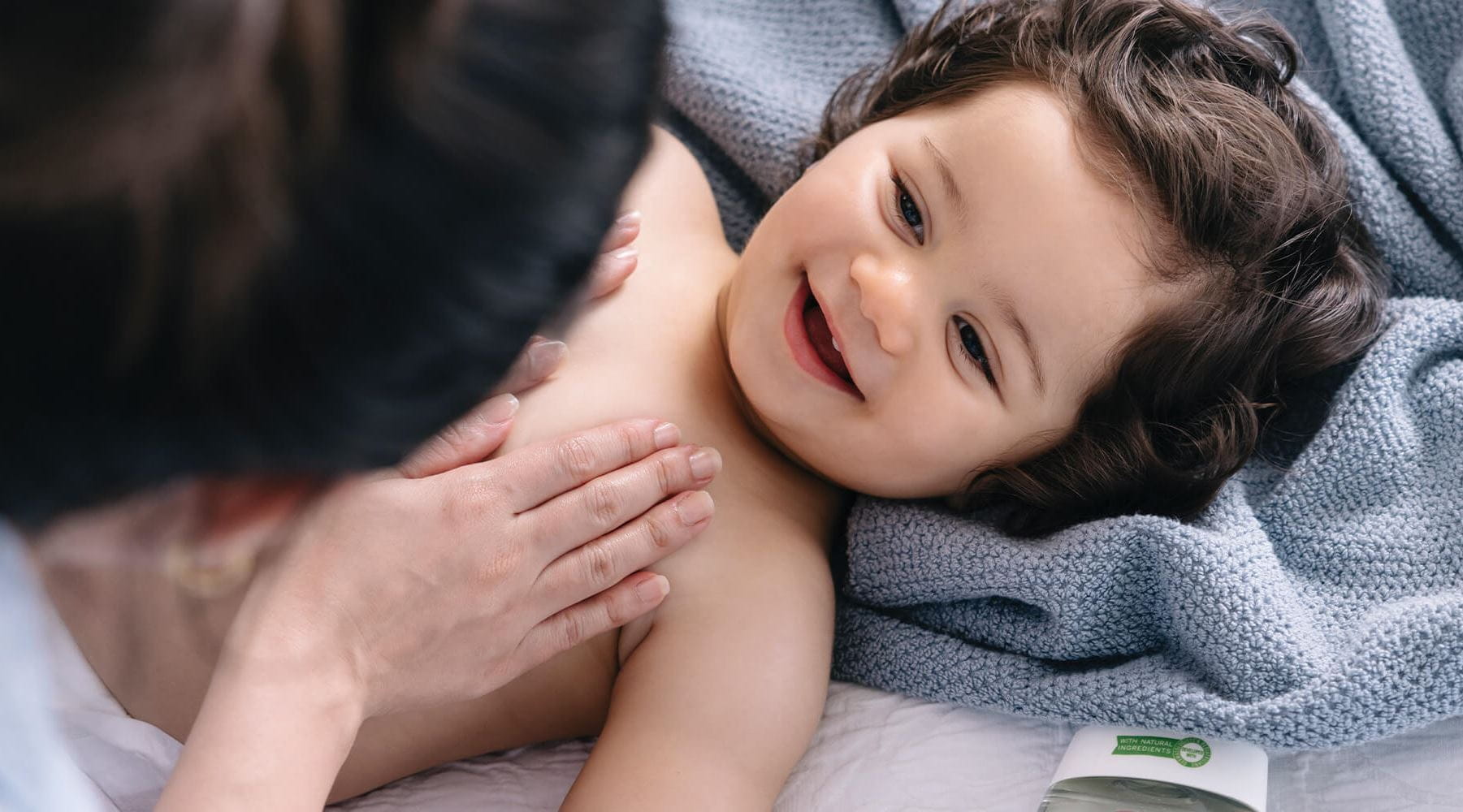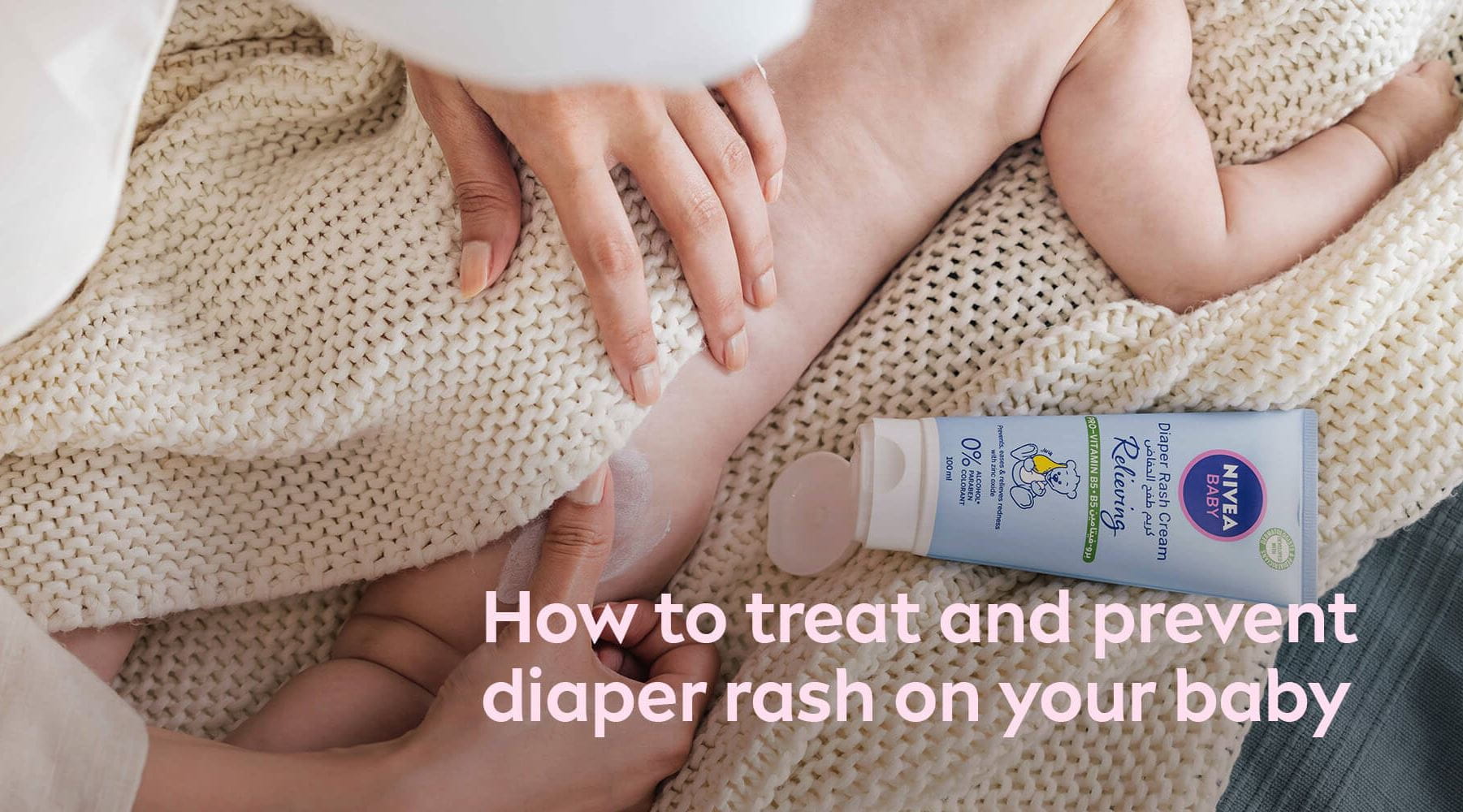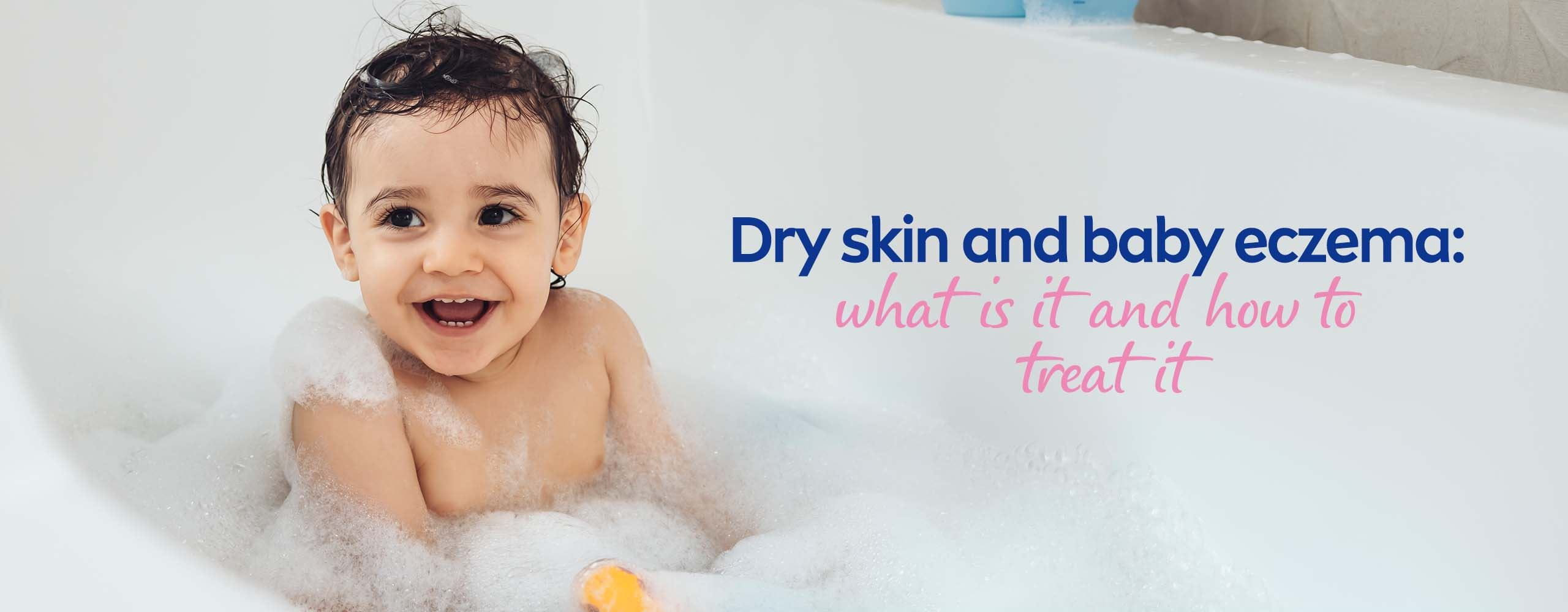
Dry skin and baby eczema:
what is it and how to treat it
Dry skin is a universal issue, especially for those living in hotter and drier climates like our region. So, there’s no surprise that babies and infants develop dry skin and eczema. While dryness is common for all babies, eczema tends to be more common in children with a family history of skin conditions.
What is baby eczema?
Infants are more likely to develop eczema on their faces, legs, and arms, while toddlers usually show those patches in the folds of their knees and elbows.
